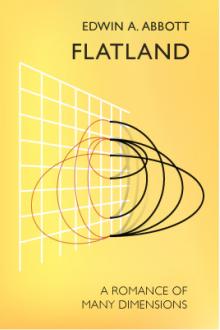Lorna Doone: A Romance of Exmoor by R. D. Blackmore (list of e readers TXT) 📖

- Author: R. D. Blackmore
Book online «Lorna Doone: A Romance of Exmoor by R. D. Blackmore (list of e readers TXT) 📖». Author R. D. Blackmore
Jeremy Stickles laughed heartily about Annie's new manner of charming the cream; but he looked very grave at the loss of the jewels, so soon as he knew their value.
'My son,' he exclaimed, 'this is very heavy. It will go ill with all of you to make good this loss, as I fear that you will have to do.'
'What!' cried I, with my blood running cold. 'We make good the loss, Master Stickles! Every farthing we have in the world, and the labour of our lives to boot, will never make good the tenth of it.'
'It would cut me to the heart,' he answered, laying his hand on mine, 'to hear of such a deadly blow to you and your good mother. And this farm; how long, John, has it been in your family?'
'For at least six hundred years,' I said, with a foolish pride that was only too like to end in groans; 'and some people say, by a Royal grant, in the time of the great King Alfred. At any rate, a Ridd was with him throughout all his hiding-time. We have always held by the King and crown: surely none will turn us out, unless we are guilty of treason?'
'My son,' replied Jeremy very gently, so that I could love him for it, 'not a word to your good mother of this unlucky matter. Keep it to yourself, my boy, and try to think but little of it. After all, I may be wrong: at any rate, least said best mended.'
'But Jeremy, dear Jeremy, how can I bear to leave it so? Do you suppose that I can sleep, and eat my food, and go about, and look at other people, as if nothing at all had happened? And all the time have it on my mind, that not an acre of all the land, nor even our old sheep-dog, belongs to us, of right at all! It is more than I can do, Jeremy. Let me talk, and know the worst of it.'
'Very well,' replied Master Stickles, seeing that both the doors were closed; 'I thought that nothing could move you, John; or I never would have told you. Likely enough I am quite wrong; and God send that I be so. But what I guessed at some time back seems more than a guess, now that you have told me about these wondrous jewels. Now will you keep, as close as death, every word I tell you?'
'By the honour of a man, I will. Until you yourself release me.'
'That is quite enough, John. From you I want no oath; which, according to my experience, tempts a man to lie the more, by making it more important. I know you now too well to swear you, though I have the power. Now, my lad, what I have to say will scare your mind in one way, and ease it in another. I think that you have been hard pressed—I can read you like a book, John—by something which that old villain said, before he stole the necklace. You have tried not to dwell upon it; you have even tried to make light of it for the sake of the women: but on the whole it has grieved you more than even this dastard robbery.'
'It would have done so, Jeremy Stickles, if I could once have believed it. And even without much belief, it is so against our manners, that it makes me miserable. Only think of loving Lorna, only think of kissing her; and then remembering that her father had destroyed the life of mine!'
'Only think,' said Master Stickles, imitating my very voice, 'of Lorna loving you, John, of Lorna kissing you, John; and all the while saying to herself, “this man's father murdered mine.” Now look at it in Lorna's way as well as in your own way. How one-sided all men are!'
'I may look at it in fifty ways, and yet no good will come of it. Jeremy, I confess to you, that I tried to make the best of it; partly to baffle the Counsellor, and partly because my darling needed my help, and bore it so, and behaved to me so nobly. But to you in secret, I am not ashamed to say that a woman may look over this easier than a man may.'
'Because her nature is larger, my son, when she truly loves; although her mind be smaller. Now, if I can ease you from this secret burden, will you bear, with strength and courage, the other which I plant on you?'
'I will do my best,' said I.
'No man can do more,' said he and so began his story.
CHAPTER LIII JEREMY FINDS OUT SOMETHING
'You know, my son,' said Jeremy Stickles, with a good pull at his pipe, because he was going to talk so much, and putting his legs well along the settle; 'it has been my duty, for a wearier time than I care to think of (and which would have been unbearable, except for your great kindness), to search this neighbourhood narrowly, and learn everything about everybody. Now the neighbourhood itself is queer; and people have different ways of thinking from what we are used to in London. For instance now, among your folk, when any piece of news is told, or any man's conduct spoken of, the very first question that arises in your mind is this—“Was this action kind and good?” Long after that, you say to yourselves, “does the law enjoin or forbid this thing?” Now here is your fundamental error: for among all truly civilised people the foremost of all questions is, “how stands the law herein?” And if the law approve, no need for any further questioning. That this is so, you may take my word: for I know the law pretty thoroughly.
'Very well; I need not say any more about that, for I have shown that you are all quite wrong. I only speak of this savage tendency, because it explains so many things which have puzzled me among you, and most of all your kindness to men whom you never saw before; which is an utterly illegal thing. It also explains your toleration of these outlaw Doones so long. If your views of law had been correct, and law an element of your lives, these robbers could never have been indulged for so many years amongst you: but you must have abated the nuisance.'
'Now, Stickles,' I cried, 'this is too bad!' he was delivering himself so grandly. 'Why you yourself have been amongst us, as the balance, and sceptre, and sword of law, for nigh upon a twelvemonth; and have you abated the nuisance, or even cared to do it, until they began to shoot at you?'
'My son,' he replied, 'your argument is quite beside the purpose, and only tends to prove more clearly that which I have said of you. However,
 Have you ever thought about what fiction is? Probably, such a question may seem surprising: and so everything is clear. Every person throughout his life has to repeatedly create the works he needs for specific purposes - statements, autobiographies, dictations - using not gypsum or clay, not musical notes, not paints, but just a word. At the same time, almost every person will be very surprised if he is told that he thereby created a work of fiction, which is very different from visual art, music and sculpture making. However, everyone understands that a student's essay or dictation is fundamentally different from novels, short stories, news that are created by professional writers. In the works of professionals there is the most important difference - excogitation. But, oddly enough, in a school literature course, you don’t realize the full power of fiction. So using our website in your free time discover fiction for yourself.
Have you ever thought about what fiction is? Probably, such a question may seem surprising: and so everything is clear. Every person throughout his life has to repeatedly create the works he needs for specific purposes - statements, autobiographies, dictations - using not gypsum or clay, not musical notes, not paints, but just a word. At the same time, almost every person will be very surprised if he is told that he thereby created a work of fiction, which is very different from visual art, music and sculpture making. However, everyone understands that a student's essay or dictation is fundamentally different from novels, short stories, news that are created by professional writers. In the works of professionals there is the most important difference - excogitation. But, oddly enough, in a school literature course, you don’t realize the full power of fiction. So using our website in your free time discover fiction for yourself. 




Comments (0)